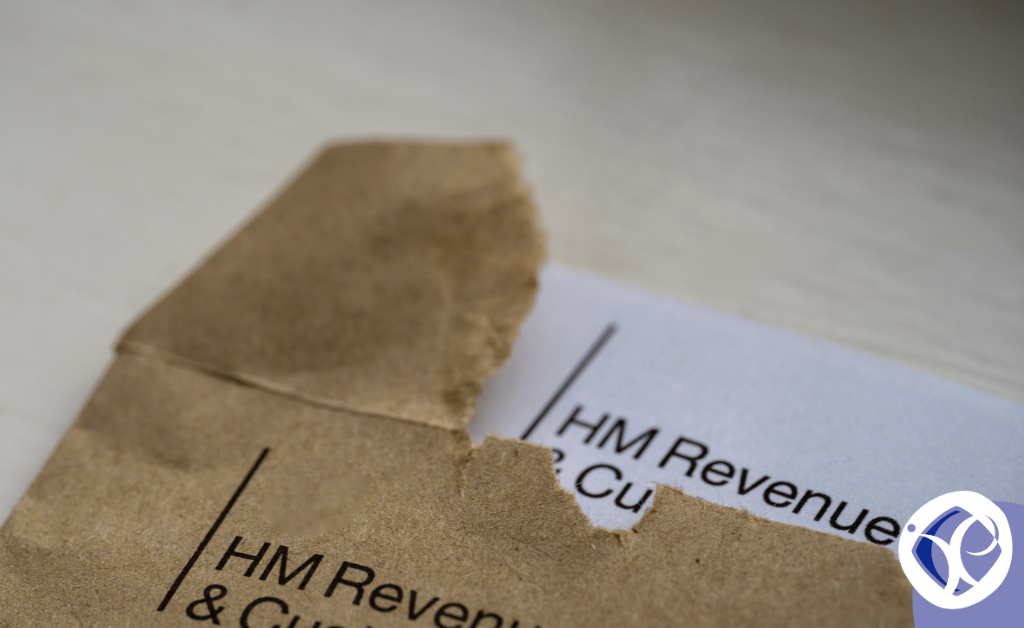There are several reasons that HMRC will send out a Tax Inquiry letter. Often, HMRC are lacking some information about the Tax that you owe, due to input error, or missed information which has been obtained from 3rd parties.
If you’re asking yourself “Why would I get a letter from HMRC?”, generally it’s because of simple human error, either from your side, or HMRC’s. We will guide you through 10 ways to deal with a HMRC Tax inquiry.

(4-minute read)
We will cover:
- What the letter means for you
- The 10 ways to deal with an inquiry and the steps to take to do so
Receiving a HMRC Tax Inquiry Letter
The very first thing to do when receiving a tax inquiry letter is to remain calm and seek professional advice.
Regularly, there has been some form of human error involved, either on your end, or on HMRC’s end.
HMRC will be asking for some clarification on some figures or documents which you have sent when filing your tax return, but that don’t match up with information held by HMRC.
Ensure to open and read the letter promptly.
Delaying responses to HMRC sometimes means that you could receive penalties.
After reading through the letter and understanding what you are being asked, create a file to store all correspondence between you and HMRC.
Make sure to record the time, date, and agent of each phone call, and, where possible, ensure delivered documents are tracked.
Receiving a tax inquiry letter does not necessarily mean you are being accused of anything.
HMRC are only ensuring that your tax payment is correct, and co-operating with HMRC is vital to them obtaining the necessary information. However, do not speak with them directly without professional guidance.
Ways to deal with a Tax Inquiry Letter from HMRC
We have already discussed the first thing to do when receiving a letter from HMRC.
Once you have taken those initial steps, seek methods of response to your tax inquiry letter.
Here is a list of 10 ways to deal with a tax inquiry letter when you receive one from HMRC.
1. Acknowledge the type of letter: Determine the letter’s type before sending any responses. The letter could be about your tax affairs, tax code, or National Insurance contributions. It may be about something more serious, like employment fraud or tax fraud.
2. Verify the authenticity of the letter: Scammers attempt to make use of HMRC’s name to fraudulently gain money from people. Ensure the letter is genuine by contacting HMRC or a tax expert. Scammers will often ask you for personal details, whilst HMRC will already know and state these details to prove their legitimacy.
3. Understand your rights: You are entitled to rights and safeguards throughout the inquiry. Familiarise yourself with this information, which can be found on the HMRC website.
4. Seek Professional Advice: If you are unfamiliar with handling your own tax matters, do not hesitate to contact taxexpert.co.uk to help. We can help to provide this advice, feel free to call us with the contact number on our website.
5. Gather the necessary records: Using the folder system previously mentioned, gather all documents relevant to your tax year, and create copies to send to HMRC. If you are looking to appeal, collect, file, and send all the related paperwork.
6. Check your tax code and tax summary: Review the tax code provided by HMRC for the relevant tax year, and carefully examine your annual tax summary and P60s to verify their accuracy.
7. Challenge unreasonable requests: Whilst it’s important to be cooperative with HMRC, challenge any requests you find to be unnecessary or unreasonable. Always ask for clarification if you aren’t sure on what you’re being asked.
8. Complain if needed: If you feel threatened or experience unacceptable delays in HMRC’s responses, you can file a complaint to address the issue.
9. Respond promptly and cooperatively: Answer questions honestly and give information requested to the best of your ability. Remember that responding late to a tax inquiry letter may incur penalties.
10. Negotiate and take appropriate action: Once HMRC have determined the result of their inquiry, act appropriately. Negotiate any settlements with HMRC, and correct any errors found. Failing to act on these letters will have significant implications on your financial future.
Summary
Whilst being an important document, a tax inquiry letter shouldn’t be something to worry about.
HMRC ensures you are compliant with the law for both parties’ peace of mind.
If there ends up being an issue with your tax filings, and you can’t pay back on time, HMRC are generally lenient with their repayment periods.
Ensure you voice any concern with a member of HMRC.
Your best course of action is to seek help from taxexpert.co.uk – your accountant might not be able to help you with dealing with HMRC.
We’re familiar with HMRC legislation and can assist you with handling any issues that arise in the course of the tax investigation.
Contact us today at 01772 788200 to find out more about how we can help, or WhatsApp us out-of-hours at 07787 010190.
Sending an e-mail is simple too, just fill out this short form and we’ll get back to you!
Kind regards Ilyas
